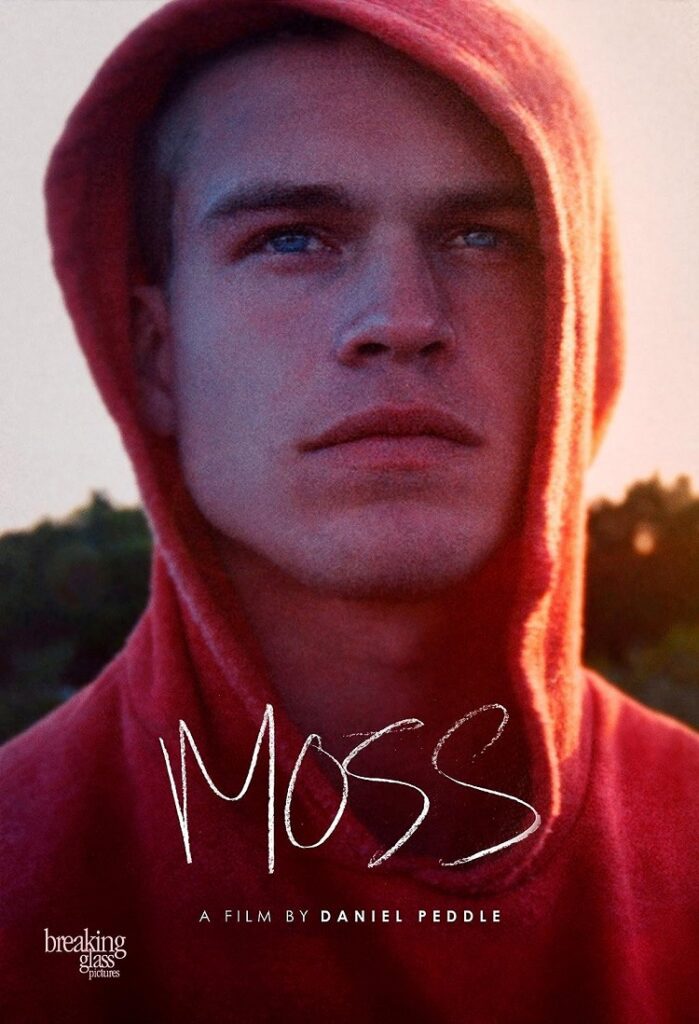
MOSS takes place over a 36-hour period in a small riverside town in rural North Carolina. The film opens with Moss (Mitchell Slaggert) waking up on his 18th birthday. The day not only marks his birthday but the 18th anniversary of his mother’s death since she died giving birth to him. He lives with his dad (Billy Ray Suggs), a driftwood artist, who has never gotten over the death of his wife. The two are at odds and Moss believes his dad now blames him for his mother’s death.
After Moss returns from shooting some fish for breakfast, his dad asks him take pills to his grandmother who lives down river but Moss doesn’t want to go. After having some peanut butter and jelly sandwiches for breakfast, he finally gives in, gets in his canoe, and begins the journey to his grandmother’s. Moss makes a stop at a house raft on the river where his weed-dealing friend Blaze (Dorian Cobb) lives. The two spend some time smoking out, discussing Moss’s virginity, and eating cereal while watching nature videos.
As he continues down river, Moss happens upon a campsite where he meets Mary (Christine Marzano), a 30-year-old divorcee who is camping on the river’s edge on her way to New York. He pulls up and offers her the fish he shot for breakfast. The two spend the day together taking mushrooms, telling secrets, and having sex. In between the scenes of Moss and Mary together, the movie shows Blaze and Moss’s dad going about their days. It is revealed that the former is not as resentful as Moss believes and the latter is on his own because his mother is incarcerated.
While this film is beautifully shot and captures the slow stickiness of a southern summer, it is unclear whose story is being told here. Since Moss begins as the narrator, I thought he would be the main focus of the film, but there doesn’t seem to be enough of a story there. The scenes of Moss’s dad and Blaze don’t really have any meat to them other than showing these characters going about their day and adding some details that do not really deepen the story as much as they should. Since the film begins with the tone of the death of Moss’s mother, I thought that the drama would just build from there and that I would get to see a lot of conflict between Moss and his dad, but there wasn’t. There is some conflict in the film, but not a lot. And without giving away too much, this film resolves all of its conflicts too easily.
All in all, MOSS captures a typical day in a small southern town. While the characters are likable, they are more types and less fully fleshed-out characters. The actors in these roles do a good job with what they were given, but the characters aren’t remarkable. Writer/director Daniel Peddle doesn’t get too deep with any of the main characters and doesn’t give his audience a reason why this story needs to be told.
I could also see a lot of things coming in this coming-of-age film. Since Moss mentions losing his virginity, I knew he was going to lose it to Mary the moment he met her. Too easy of a situation. And while Peddle might be setting Mary up to be a irresponsible woman, she is a little to easily won over. Moss also owns an owl named Archie, whom he tells “soon” in regards to setting Archie free. So no big surprise that Moss sets him free at the end of the film.
While Peddle may have been trying to show lazy, boring days in this small southern town, the film left me bored. I wanted there to be a reason for this story to be told and Peddle just did not provide a compelling one. It appears that Peddle was aiming for a Southern Gothic tale, but he misses the mark. The scenes just really feel more like a collection of scenes and don’t ever really build to anything more.
The film has a runtime of 81 minutes and made its debut at the Los Angeles Film Festival on June 21.